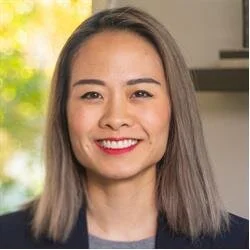Wes Kao, Co-Founder @ Maven
Wes Kao is a Co-Founder of Maven, a platform that enables anyone to build a cohort-based course and deliver an incredible student experience at scale. Prior to founding Maven, Wes co-founded the altMBA, where she designed the program’s coaching system, grew the community from zero to 550 cities in 45 countries in three years, and built a team of 40 people. Wes is a thought leader in building cohort-based courses and frequently writes about marketing, online courses, and rigorous thinking on her blog.
In this episode we spoke with Wes about the following:
-Choosing to play games you can win by turning bugs into features
-The mental load created by the narrow range of motion Asian Americans, women, and other minorities are afforded
-Learning to be comfortable taking up space and embracing productive conflict in the workplace
You can listen to her below, Spotify, or wherever else you get to your podcasts.
The nuances between pattern breaking and pattern matching
I think acknowledging the way people perceive us and the expectations they have of us is really important. When I was younger, I was in denial about that and I wanted to operate in a society and in a world where what I looked like didn’t matter. Things become much more productive when I acknowledged that truth; which is that when people see an Asian person or even hear an Asian name, there’s already a ton of assumptions people are making. That’s the reality of the situation.
Now, what do I do with that information? I think a lot about “pattern breaks” vs “pattern matches”. There’s a certain tension with people when you are a pattern break vs when you are a pattern match. It’s a fine line because if you are too much of a pattern break, you’re seen as a threat to establishment; you are too weird. If you are too much of a pattern match, then you are put into a bucket with thousands of other people. People assume we are all the same and there is nothing about you that stands out.
Again, there is a fine line of thinking about how I want to be a pattern match so I’m taken seriously, but enough of a pattern break that people see me for who I am. I’ve talked about this a lot with my AAPI and POC friends a lot. Whiteness is the default. Even when you think about being American, the first person you think of is a white person.
Let’s be enough of a pattern break that people can see us as individuals, and pattern match to not be isolated.
Being comfortable taking up space
My parents are Taiwanese and they’ve been living in the US for 40 years. Taiwanese culture is very warm, humble, and familiar. I think growing up in that culture I was taught to be kind and downplay things. If someone came to your house, you’d always serve them tea, make sure they were comfortable, and make space for them.
Wanting to make space for other people doesn’t necessarily fit in that well in the Western working culture. I remember as a kid, if my family and I were getting into an elevator we would also make ourselves really small and let others in because culturally, that was the right thing to do. Although, that would also mean that I would be squished uncomfortably for everyone else’s comfort. I was making space for other people to the point where it was uncomfortable and a bad experience for me.
As I became an adult I didn’t want to do that anymore. I wanted to stand normally, set normal personal boundaries, and not press up against the wall to let a few more people in. They can wait. At first, it felt wrong and selfish. I asked myself if I was a bad person often. It felt jarring because it was so different than what I had grown up with.
Like reading about Wes? Want to get notified of any new episodes of the podcast? Subscribe to our newsletter here.
Until next time,
Jay and Angie
